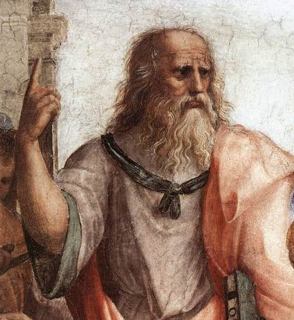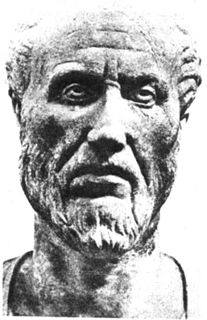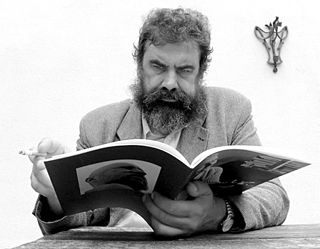John Norbert Deck (born Buffalo, New York, December 2, 1921; died September 5, 1979) was a Canadian philosopher. Adhering to neither sartorial nor intellectual fashions, Deck inspired generations of students with his highly idiosyncratic form of idealism, deriving from Plotinus but equally rooted in Thomas Aquinas and Hegel.
He was educated at Assumption College in Windsor, Ontario, which at that time was affiliated with the University of Western Ontario (B.A., 1946, M.A., 1946). He received his Ph.D. in philosophy at the University of Toronto in 1960. His doctoral dissertation reappraised the Neoplatonic philosophy of Plotinus from the standpoint of a central doctrine in his Enneads, exploring how "contemplative producing" gives rise to every level of reality, including the physical world; it was published as Nature, Contemplation, and the One: A Study in the Philosophy of Plotinus by the University of Toronto Press in 1967.
After serving as Assistant Professor of Philosophy at Boston College and a brief stint working for the Canadian Pacific Railway, in 1957 he became Professor of Philosophy at Assumption College, (later known as the University of Windsor), where he taught graduate and undergraduate courses in metaphysics and the history of philosophy until his death. The University of Windsor awards the John N. Deck Memorial Prize in Philosophy each year "in recognition of outstanding scholastic achievement or proficiency."
At a time when Neoplatonism in philosophy, as well as philosophy itself in the university, was considered hopelessly outdated, he developed a freshman class called "Dream worlds and real worlds" that brought the message of Plotinus to the most unpromising students; it proved to be immensely popular, disconcerting his academic rivals.
Although he died in 1979, he is arguably more popular and influential now than ever before. Nature, Contemplation, and the One was republished in 1991 (back in print for the first time after over twenty years, and in a convenient paperback) and now a proliferation of websites such as Anthony Flood's are making available his articles for ongoing discussion.
R. Baine Harris, Director of the International Neoplatonic Society, has called Nature, Contemplation and the One "the best book on Plotinus" and said that "it must be read by all modern serious students of Plotinus."
Anthony Damiani, a longtime student of Paul Brunton and founder of Wisdom's Goldenrod Center for Philosophic Studies in upstate New York, considered Deck's magnum opus, Nature, Contemplation, and the One to be the best guide to Plotinus. His publishing house, Larson, has republished it in paperback with a brief introduction by Deck's friend and executor, Lawrence Dewan, which places Deck as a member of the "workshop of Plotinus." They have also reissued an edition of Stephen MacKenna's translation of the Enneads of Plotinus, which footnotes alternate translations from all the later scholars, especially Deck.
Ammonius Saccas was a Hellenistic Platonist self-taught philosopher from Alexandria, generally regarded as the precursor of Neoplatonism and/or one of its founders. He is mainly known as the teacher of Plotinus, whom he taught from 232 to 242. He was undoubtedly the biggest influence on Plotinus in his development of Neoplatonism, although little is known about his own philosophical views. Later Christian writers stated that Ammonius was a Christian, but it is now generally assumed that there was a different Ammonius of Alexandria who wrote biblical texts.
In ontology, categories of being are the highest kinds or genera of entities. To investigate the categories of being, or simply categories, is to determine the most fundamental and the broadest classes of entities. A distinction between such categories, in making the categories or applying them, is called an ontological distinction. Various systems of categories have been proposed, they often include categories for substances, properties, relations, states of affairs or events.
In the Platonic, Neopythagorean, Middle Platonic, and Neoplatonic schools of philosophy, the demiurge is an artisan-like figure responsible for fashioning and maintaining the physical universe. The Gnostics adopted the term demiurge. Although a fashioner, the demiurge is not necessarily the same as the Creator figure in the monotheistic sense, because the demiurge itself and the material from which the demiurge fashions the universe are both considered consequences of something else. Depending on the system, they may be considered either uncreated and eternal or the product of some other entity.

In philosophy, the term idealism identifies and describes metaphysical perspectives which assert that "reality" is indistinguishable and inseparable from human perception and understanding; that reality is a mental construct closely connected to ideas. Idealist perspectives are in two categories: (i) Subjective idealism, which proposes that a material object exists only to the extent that a human being perceives the object; and (ii) Objective idealism, which proposes the existence of an objective consciousness that exists prior to and independently of human consciousness, thus the existence of the object is independent of human perception.

Proclus Lycius, called Proclus theSuccessor, Proclus thePlatonicSuccessor, or Proclus of Athens was a very influential Greek Neoplatonist philosopher and a prolific writer of ancient Greek philosophy leaving behind extensive commentaries on Plato, Aristotle, Porphyry and Plotinus, books and treaties on Neoplatonic theology, epigrams and hymns. He was the last of the Alexandrian philosophers and set forth one of the most elaborate and fully developed systems of Neoplatonism. He stands at the end of the ancient Greek philosophy and at the beginning of medieval philosophy and is historically significant because he is a major connection between those two Ages of philosophy.

Plotinus was a major Hellenistic Greek philosopher born and raised in Roman Egypt, regarded by modern scholarship as the founder of Neoplatonism. His teacher was the self-taught philosopher Ammonius Saccas, who belonged to the Platonic tradition. Historians of the 19th century invented the term "Neoplatonism" and applied it to refer to Plotinus and his philosophy, which was vastly influential during Late Antiquity, the Middle Ages, and the Renaissance. Much of the biographical information about Plotinus comes from Porphyry's preface to his edition of Plotinus' most notable literary work, The Enneads. In his metaphysical writings, Plotinus described three fundamental principles: the One, the Intellect, and the Soul. His works have inspired centuries of Pagan, Jewish, Christian, Gnostic, and Islamic metaphysicians and mystics, including developing precepts that influence mainstream theological concepts within religions, such as his work on duality of the One in two metaphysical states.
Theurgy describes the practice of rituals, sometimes seen as magical in nature, performed with the intention of invoking the action or evoking the presence of one or more deities, especially with the goal of achieving henosis and perfecting oneself.

The Enneads, fully The Six Enneads, is the collection of writings of Plotinus, edited and compiled by his student Porphyry. Plotinus was a student of Ammonius Saccas and they were founders of Neoplatonism. His work, through Augustine of Hippo, the Cappadocian Fathers, Pseudo-Dionysius the Areopagite and several subsequent Christian and Muslim thinkers, has greatly influenced Western and Near-Eastern thought.

Jacques Maritain was a French Catholic philosopher. Raised Protestant, he was agnostic before converting to Catholicism in 1906. An author of more than 60 books, he helped to revive Thomas Aquinas for modern times, and was influential in the development and drafting of the Universal Declaration of Human Rights. Pope Paul VI presented his "Message to Men of Thought and of Science" at the close of Vatican II to Maritain, his long-time friend and mentor. The same pope had seriously considered making him a lay cardinal, but Maritain rejected it. Maritain's interest and works spanned many aspects of philosophy, including aesthetics, political theory, philosophy of science, metaphysics, the nature of education, liturgy and ecclesiology.
The absence of good, also known as the privation theory of evil, is a theological and philosophical doctrine that evil, unlike good, is insubstantial, so that thinking of it as an entity is misleading. Instead, evil is rather the absence, or lack (“privation”), of good. This also means that everything that exists is good, insofar as it exists; and is also sometimes stated as that evil ought to be regarded as nothing, or as something non-existent.

Platonism is the philosophy of Plato and philosophical systems closely derived from it, though contemporary platonists do not necessarily accept all of the doctrines of Plato. Platonism had a profound effect on Western thought. Platonism at least affirms the existence of abstract objects, which are asserted to exist in a third realm distinct from both the sensible external world and from the internal world of consciousness, and is the opposite of nominalism. This can apply to properties, types, propositions, meanings, numbers, sets, truth values, and so on. Philosophers who affirm the existence of abstract objects are sometimes called platonists; those who deny their existence are sometimes called nominalists. The terms "platonism" and "nominalism" also have established senses in the history of philosophy. They denote positions that have little to do with the modern notion of an abstract object.

Gnosticism refers to a collection of religious groups originating in Jewish religiosity in Alexandria in the first few centuries CE. Neoplatonism is a school of Hellenistic philosophy that took shape in the 3rd century, based on the teachings of Plato and some of his early followers. While Gnosticism was influenced by Middle Platonism, neoplatonists from the third century onward rejected Gnosticism.
The following is a list of disciples of Plotinus. The philosopher Plotinus was the founder of the school known as Neoplatonism.

Henosis is the classical Greek word for mystical "oneness", "union" or "unity". In Platonism, and especially Neoplatonism, the goal of henosis is union with what is fundamental in reality: the One, the Source, or Monad. The Neoplatonic concept has precedents in the Greek mystery religions as well as parallels in Eastern philosophy. It is further developed in the Corpus Hermeticum, in Christian theology, Alevism, soteriology and mysticism, and is an important factor in the historical development of monotheism during Late Antiquity.
John Myles Dillon is an Irish classicist and philosopher who was Regius Professor of Greek in Trinity College, Dublin between 1980 and 2006. Prior to that he taught at the University of California, Berkeley. He was elected a corresponding member of the Academy of Athens on 15 June 2010. Dillon's area of research lies in the history of Platonism from the Old Academy to the Renaissance, and also Early Christianity.

Neoplatonism was a major influence on Christian theology throughout Late Antiquity and the Middle Ages in the West. This was due to St. Augustine of Hippo, who was influenced by the early neoplatonists Plotinus and Porphyry, as well as the works of the Christian writer Pseudo-Dionysius the Areopagite, who was influenced by later neoplatonists, such as Proclus and Damascius.
In philosophy, noetics is a branch of metaphysics concerned with the study of mind as well as intellect. There is also a reference to the science of noetics, which covers the field of thinking and knowing, thought and knowledge, as well as mental operations, processes, states, and products through the data of the written word.

Neoplatonism is a strand of Platonic philosophy that emerged in the 3rd century AD against the background of Hellenistic philosophy and religion. The term does not encapsulate a set of ideas as much as it encapsulates a chain of thinkers which began with Ammonius Saccas and his student Plotinus, which stretches to the 6th century AD. Even though neoplatonism primarily circumscribes the thinkers who are now labeled neoplatonists and not their ideas, there are some ideas that are common to neoplatonic systems; for example, the monistic idea that all of reality can be derived from a single principle, "the One".

Algis Uždavinys (1962–2010) was a prolific Lithuanian philosopher and scholar. His work pioneered the hermeneutical comparative study of Egyptian and Greek religions, especially their esoteric relations to Semitic religions, and in particular the inner aspect of Islam (Sufism). His books have been published in Lithuanian, Russian, English and French, including translations of Plotinus, Frithjof Schuon and Ananda Coomaraswamy into Russian and Lithuanian.

Lloyd P. Gerson is an American-Canadian scholar of ancient philosophy, the history of philosophy, metaphysics, and Neoplatonism. He is a fellow of the Royal Society of Canada. He is best known for his work on Plotinus.